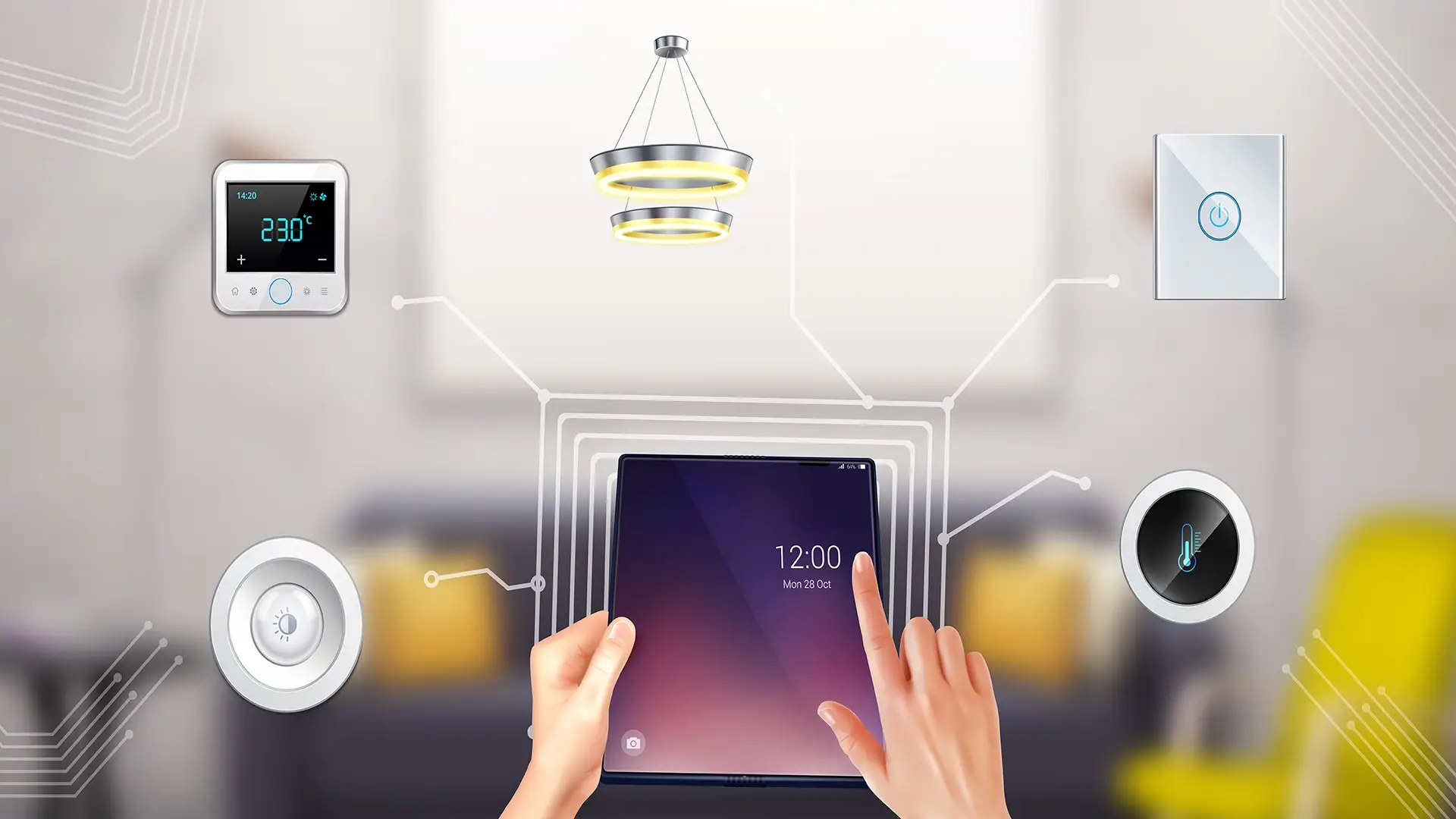The Rise of Smart Home Technology
The concept of smart homes has evolved significantly over the past decade, with advancements in technology paving the way for a more connected and automated living environment.
Smart home technology encompasses a wide array of devices and systems that enhance the functionality, safety, and energy efficiency of residential properties.
From smart thermostats and lighting systems to security cameras and voice-activated assistants, these innovations are revolutionizing how homeowners interact with their living spaces.
As consumers become increasingly tech-savvy, the demand for smart home features has surged. Homeowners are not just looking for basic amenities; they want homes equipped with the latest technology that can simplify their lives and offer convenience.
This shift in consumer preference is influencing real estate trends, pushing builders and developers to integrate smart technology into new constructions and renovations.
Impact on Real Estate Values
The incorporation of smart home technology is directly affecting property values and market desirability. Homes that are equipped with smart devices tend to attract higher offers and sell faster than those without such features.
Real estate agents are increasingly highlighting these technological upgrades in listings, as buyers recognize the long-term benefits of energy savings, enhanced security, and improved quality of life.
Moreover, the rise of smart homes is contributing to a new classification of properties within the real estate market. As these homes become more prevalent, buyers are beginning to prioritize smart features as essential rather than optional.
This trend is likely to continue, with properties that lack smart technology potentially facing depreciation in value over time.
Integration with Sustainable Living
As environmental concerns gain prominence, smart home technology is playing a crucial role in promoting sustainable living.
Smart devices can optimize energy consumption, reduce waste, and enhance overall efficiency. For instance, smart thermostats learn a homeowner’s schedule and adjust heating and cooling accordingly, leading to significant energy savings.
Real estate developers are increasingly recognizing the synergy between smart home technology and sustainability.
Builders are now designing homes that not only integrate smart features but also utilize eco-friendly materials and renewable energy sources.
This combination appeals to environmentally conscious buyers and positions developers as forward-thinking and responsible.
Challenges and Considerations
Despite the many benefits of smart home technology, challenges remain. One of the primary concerns is cybersecurity. As homes become more connected, they also become more vulnerable to hacking and data breaches.
Homeowners must be educated about securing their devices and networks to protect their privacy and personal information.
Additionally, the rapid pace of technological advancement can lead to obsolescence. Homeowners may find themselves frequently upgrading devices to keep up with new developments, which can be both costly and inconvenient.
Real estate professionals must stay informed about the latest technologies to effectively advise clients on the best investments in smart home features.
The Role of Real Estate Professionals
Real estate agents and brokers are increasingly finding themselves in the position of technology advisors. To remain competitive, they must understand the implications of smart home technology and how it affects property value.
By educating clients about the advantages of smart features, real estate professionals can help buyers make informed decisions and sellers maximize their property’s appeal.
Furthermore, as smart homes become a staple in residential real estate, agents may need to develop partnerships with technology providers to offer clients comprehensive solutions. This collaboration can lead to enhanced customer satisfaction and foster long-term relationships.
A Smart Future Awaits
The future of smart homes is bright, with technology continuing to shape the landscape of real estate. As consumers demand more connected and efficient living spaces, the industry must adapt to meet these expectations.
The integration of smart technology not only enhances the homeowner experience but also contributes to sustainable living practices and increased property values.
As we move forward, it is essential for both homeowners and real estate professionals to embrace these changes, navigating the challenges and opportunities that come with the rise of smart homes.
The real estate market is on the brink of a technological revolution, and those who are prepared to innovate will thrive in this new era of homeownership.

